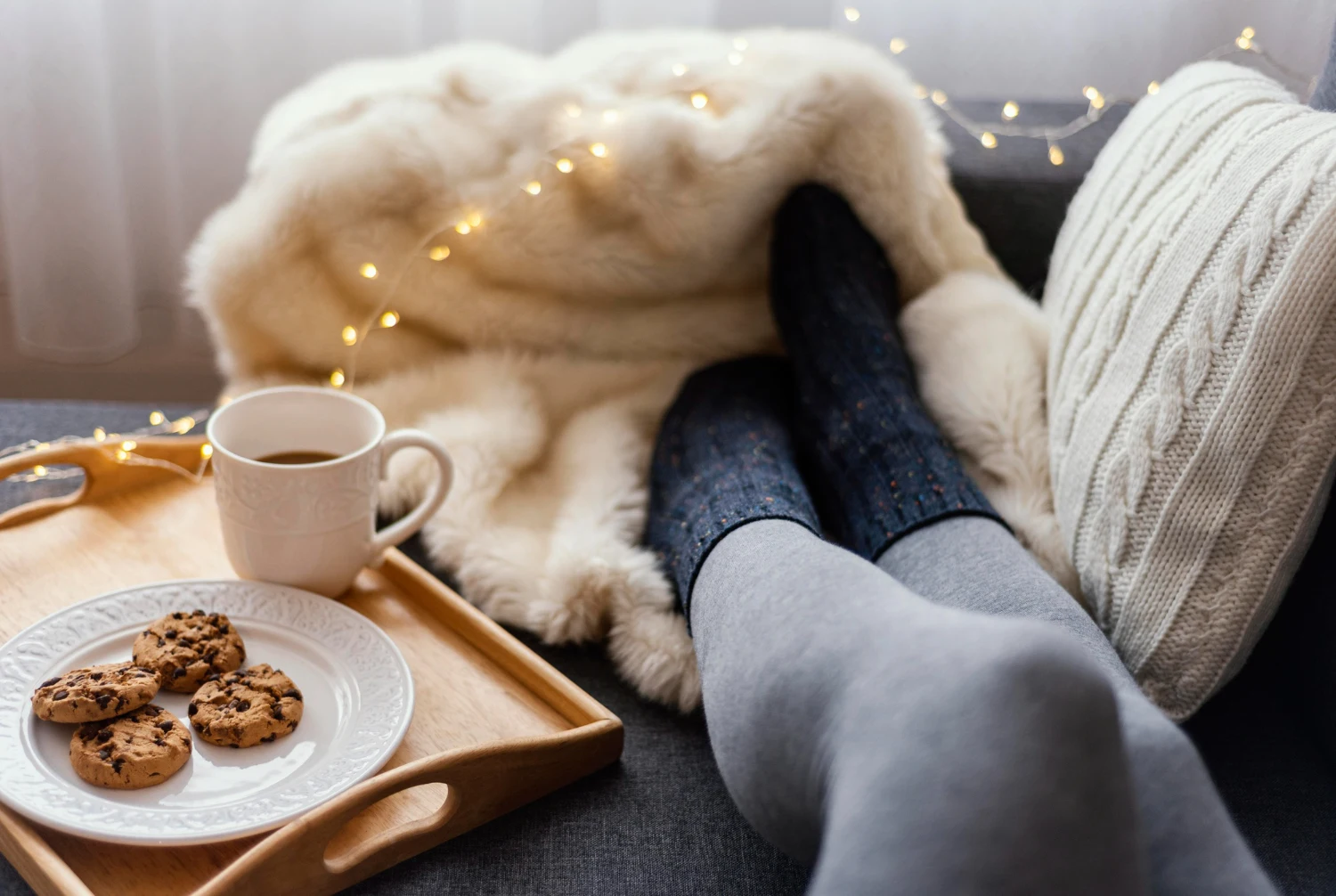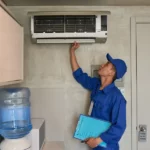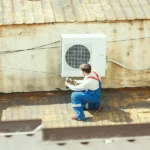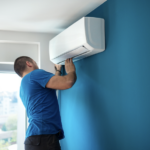Winter is coming and with it comes chilly winds and frosty temperatures. That’s why it’s essential to have a reliable heating system at home.
This guide will break down everything you need to know about preparing and maintaining your HVAC system for a comfortable winter. If you’re looking for the best HVAC tips for winter, then you can start your search below!
How HVACs Keep You Warm in Winter
HVAC systems combine heating, ventilation, and sometimes air conditioning to keep you cozy during the winter months. Through its heating component, it produces warm air. Then its ventilation part spreads this warm air all around your home, making sure you stay snug in every room. Lastly, the air conditioning part helps regulate the temperature to optimize your comfort at home.
HVAC Tips to Keep Your Unit Efficient During Winter
To stay warm during winter and save on energy costs, you must make sure your HVAC unit is operating efficiently. Here are a few good HVAC tips to follow:
Regular Maintenance
Schedule professional HVAC maintenance before winter. A well-tuned system operates efficiently.
Change Filters
Replace air filters monthly or as recommended by your HVAC manufacturer. Clogged filters reduce airflow and make your system work harder.
Programmable Thermostat
Invest in a programmable thermostat to regulate temperatures efficiently, lowering heat when you’re away or asleep.
Seal Air Leaks
Inspect doors, windows, and ducts for drafts. Use weatherstripping, caulking, or insulation to seal gaps.
Upgrade Insulation
Ensure your home is well-insulated, including the attic and walls, to prevent heat loss.
Close Curtains at Night
Close curtains or blinds at night to trap heat inside, and open them during the day to let in sunlight.
Use Ceiling Fans
Set ceiling fans to run clockwise at a low speed to push warm air down from the ceiling.
Avoid Blocking Vents
Ensure vents and radiators are not blocked by furniture or curtains to allow proper airflow.
Clean Around Outdoor Unit
Remove debris, leaves, and snow from around the outdoor HVAC unit to ensure proper airflow.
Consider Zoning
If possible, create heating zones in your home to only heat occupied areas, saving energy in less-used spaces.
Check for Leaky Ducts
Inspect and seal any leaks in your ductwork to prevent heated air from escaping into unused areas.
Use Humidifiers
Adding moisture to the air with a humidifier can help it feel warmer, allowing you to lower the thermostat.
Upgrade to Energy-Efficient Equipment
If your HVAC unit is old, consider upgrading to an energy-efficient model with a high SEER (Seasonal Energy Efficiency Ratio) rating.
Schedule Regular Inspections
Have a professional inspect your HVAC system regularly to catch and fix issues early.
Consider a Smart Thermostat
Smart thermostats can learn your heating patterns and adjust settings for maximum efficiency.
Turn Down Water Heater
Lower your water heater’s temperature to save energy and reduce heating costs.
Use Door Draft Stoppers
Place draft stoppers under doors to prevent cold air from entering and warm air from escaping.
Limit Exhaust Fans
Use exhaust fans sparingly, as they can remove warm air from your home.
Close Unused Rooms: Close doors and vents in unused rooms to concentrate heat where it’s needed.
Educate Household Members
Make sure everyone in your home understands the importance of conserving heat and using the thermostat wisely.
Safety Concerns for HVACs During Winter
At the same time, you need to be aware of certain safety concerns when prepping up your HVAC system for the winter season. These include:
Carbon Monoxide Poisoning
Furnaces, boilers, and gas heaters can produce carbon monoxide. Install and regularly test CO detectors near sleeping areas. Symptoms of CO poisoning include headaches, dizziness, nausea, and confusion.
Fire Hazards
Space heaters, electric blankets, and portable heaters can pose fire risks if not used properly. Keep flammable materials away from these heating sources and turn them off when unattended.
Blocked Vents and Air Intakes
Snow and ice can obstruct exhaust vents and air intakes of your HVAC system. Regularly clear these areas to prevent dangerous fumes from entering your home and ensure proper system operation.
Frozen Pipes
Extremely cold temperatures can cause pipes to freeze and burst. Proper insulation and heating can prevent this issue. If pipes do freeze, turn off the water supply to prevent further damage.
Overloading Electrical Circuits
Using multiple space heaters or electric blankets on the same circuit can overload it, leading to electrical fires. Spread the load across different circuits and avoid using extension cords.
Blocked Chimneys
If you have a fireplace or wood-burning stove, ensure the chimney is clear of debris and creosote buildup. Blocked chimneys can lead to chimney fires.
Frozen Outdoor Units
If you have an outdoor HVAC unit, it can freeze in cold weather. Follow manufacturer guidelines for winterizing or covering the unit to prevent damage.
Gas Leaks
Check for gas leaks around your heating equipment. If you smell gas (rotten egg odor), evacuate your home immediately and contact the gas company.
HVAC System Malfunctions
Pay attention to unusual sounds or odors coming from your HVAC system. These could be signs of malfunction or potential safety hazards.
Ventilation and Indoor Air Quality
Ensure proper ventilation to remove indoor pollutants. Blocked or inefficient ventilation can lead to poor indoor air quality and health issues.
Ice Dams
Ice dams on your roof can lead to water damage and leaks inside your home. Proper insulation and attic ventilation can help prevent ice dam formation.
Frequently Asked Questions
How do I prepare my HVAC for winter?
To prepare your HVAC for winter, start by inspecting and servicing the heating unit, changing air filters, sealing drafts, and adjusting thermostat settings for colder weather. Regular maintenance ensures your system runs efficiently and keeps you warm throughout winter.
What is the winter mode for HVAC?
Winter mode for HVAC typically involves setting your thermostat to a comfortable temperature for the colder months, ensuring your heating system runs efficiently while keeping you warm and cozy indoors.
How does HVAC work in winter?
In winter, HVAC systems generate heat using a furnace or boiler, which warms the air. The ventilation system then circulates this warm air throughout your home, maintaining a comfortable temperature and helping you stay cozy.
How do you winterize an HVAC system?
To winterize an HVAC system, follow steps like servicing the heating unit, changing air filters, sealing drafts, and insulating your home. These measures ensure your system runs efficiently and keeps your home warm during the winter season.
Ready to Stay Warm This Winter? Follow Our HVAC Guide!
By exploring our guide, you can prepare your HVAC unit properly for winter. From the best HVAC tips to the most pressing safety concerns, we’ve got you covered.
Get the knowledge you need to keep your home snug all season long. Don’t wait! Secure your comfort now! If you have any concerns, reach out to your trusted HVAC professional.






